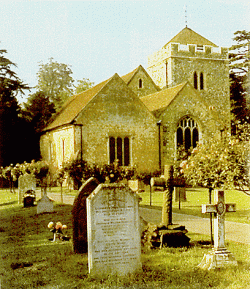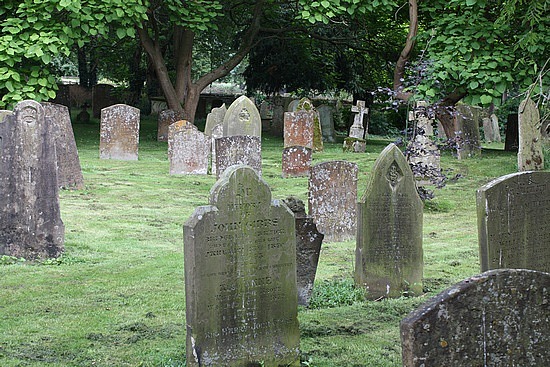This poem was written in 1914. Hardy’s poems often contained themes of disappointment in love and life. One such poem is this one. The speaker of the poem is dead and buried. It’s at her grave that the whole of the poem is set. The grave comes into play physically in the last stanza only, but the implications of the location are present right from the first stanza.
About the Poet
Born in 1840 in the region of Dorsetshire, Thomas Hardy went on to become a novelist and poet. His most notable works include ‘Tess of the d’Urbervilles,’ ‘Far from Madding Crowd,’ ‘The Mayor of Casterbridge,’ and ‘Collected Poems.’ Though Hardy considers himself primarily a poet, he is well known for both his novels and poems. He started his literary career with the novel ‘Far from the Madding Crowd’ in 1874. He published his poems first in the year 1898, though he started writing them long before that. He was a Victorian realist, and he acutely criticized the then-existing values and social pressures of people. A man lauded by senior poets and an inspiration to the younger ones, Thomas Hardy, died in the year 1928.
“Ah, Are You Digging My Grave:” Summary
The speaker of the poem is dead and buried. She senses someone digging her grave. She calls out to the person asking, “Are you digging my grave, my beloved husband? Are you bitterly regretting my demise?” But then she stops and realizes that is not true. Her husband has now wed a second time, thinking that it cannot hurt her in any way as she was dead.
Then she goes on to guess a second time. Is it her nearest and dearest kin? Again it’s a no. They sit at home and think it would be useless to go and plant flowers at her grave. No amount of care would now bring her back.
But someone is still digging her grave. She ponders on the thought that it is an enemy she made when she was alive. But no, her enemy would not care to hate her when she is dead. Unable to guess anymore, she finally calls out to the digger asking him who he is. And the digger replies, “It is me, my mistress, your little dog. I hope I have not disturbed you with my movements?”
Upon these words, the speaker realizes that at least one true friend of hers was left in this world. There is no faithfulness, greater than one between a human and a dog, to find between human beings, she thinks. But then the dog says that it was not for the sake of the mistress, the speaker, that she (the dog) was digging the grave. The grave was on the way she walked daily, and in case she felt hungry when she was on these walks, she was burying a bone. The dog forgot that it was the resting place of her mistress.
“Ah, Are You Digging My Grave:” Analysis
The poem is in the style of a ballad. It has rhyme and a rhythm of ABCCCB in all of its six stanzas. The poem’s speaker is dead; presumably, a woman, not too old since her husband married a second time, who speaks out when she senses someone is disturbing her grave. She first thinks it’s her husband but banishes that thought when she realizes that it was only yesterday that he went off to marry a second time. In her thoughts, the marriage has negative vibes. ‘Planting rue’ first makes us think that the husband loved his dead wife and he was bitterly regretting the demise. But later on, we learn that her husband’s love wasn’t strong enough to prevent him from marrying a second time. The definition of rue, in this case, changes from regrets to literal rue, a bitter plant. It also indicates the state of their marriage when she (the dead speaker) was alive.
‘One of the brightest wealth has bred’ may mean that the husband married for reasons other than pure love. Either way, negative emotions start right from the first stanza.
Her relatives have abandoned her grave, thinking no amount of care given to her grave will bring her back, and hence it was pointless. No care can loosen her spirit from Death’s gin. Gin is a trap for small birds or mammals. Here, it indicates that the speaker’s soul is trapped by death. Instead of paying respects to the dead, the relatives think materialistically and practically. Human sentimentality is lost here.
There is an abstract reference in the third stanza. ‘Gate that shuts on all flesh’: here, the gate is death, and flesh is the human body. It indicates that all humans will face death sooner or later, and when that time comes, your enemy abandons thoughts of you.
In the fourth stanza, it is revealed that the digger is the dead speaker’s dog. In the fifth stanza, the speaker appreciates the faithfulness between a human and a dog and how it surpasses the trials of death and remains eternal throughout.
With these two stanzas, the reader is made expectant and hopeful of life and love. Even though the love of your life abandons you, your family neglects you, and your enemy forgets you, there is still a life that remembers you. A dog’s faith and love for its owner are praised.
But the poem doesn’t end there. It goes into the sixth stanza, wherein the irony hits the reader hard. The dog, too, had forgotten the speaker, and it was there only to bury her bone. The satire and humour prevalent from the first culminate into this moment, which, while satirical and humorous, leaves a bad taste in one’s mouth. The hope that comes from the fourth and fifth stanzas is extinguished, and the reader is left to ponder death and relationships.
Ah, Are You Digging My Grave: Central Idea
As said before, Thomas Hardy’s poems often contained themes of disappointment in love and life. At the time of the writing of this poem, the world was undergoing a revolution in values. This revolution influenced everyone who came into contact with it. The effect is seen in Hardy’s works which criticized the then values and social constraints. This poem, written humorously and satirically, is at the same time a criticism of the fickleness of the human mind and a reflection of his disappointment in human’s fickleness towards love. The central idea is to portray this fickleness to the whole wide world.
Ah, Are You Digging My Grave: Figures of Speech
Allusion:
It is not specifically mentioned that the speaker of the poem is dead. But with her various sentences, it is understood that the speaker is a ‘she’ and that she was married and that she was now dead and buried.
Personification:
The digger, the dog at the end of the poem, is given the human characteristics of speech. To go further, the poem’s speaker is dead, so it was her dead body that was speaking throughout the poem. A dead body is inanimate, and yet, it was given speech and thought. This can also be considered personification.
Stanza: The poem has six stanzas, each having 6 lines of verse.
Rhyme:
In every stanza, the second and sixth lines’ last words rhyme with each other, and the third, fourth and fifth lines’ last words rhyme with each other.
Rhythm:
Each stanza has a regular rhythm of ABCCCB.
Repetition:
The first line of verse of every stanza has the sentence, ‘are you digging my grave’ in one form or the other.
Ah, Are You Digging My Grave: Irony
Irony: The fourth and fifth stanza makes the reader think the poem is a poem of hope, that when human relations abandon you upon death, you can always count on canine ones. But it is shown that that wasn’t the case in the sixth stanza. The simple language makes the sixth stanza that much more brutal, making the irony hit that much harder.
Ah, Are You Digging My Grave: Tone
The tone of the poem: At first, the tone is inquisitive. It then turns affectionate as the thought of the speaker’s husband comes to mind. But upon realizing it is not so, it turns confused. Realizing it’s not her family, too, it turns accusing, believing it to be her enemy. But that is ruled out too, and when she finds out the digger’s identity, it again becomes affectionate and warm. And in the last paragraph, it becomes detached and matter-of-fact, which is short and brutal.
Thomas Hardy shows a mostly accurate reflection of human mentality and the human mind’s fickleness through this poem. The ‘mostly’ is due to the fact that the case presented in the poem is not always the case. But Thomas Hardy succeeds in showing humans’ grim and negative side and makes one think of death and its implications.
Updated by Anjali Roongta on 14th April 2023.
Some online learning platforms provide certifications, while others are designed to simply grow your skills in your personal and professional life. Including Masterclass and Coursera, here are our recommendations for the best online learning platforms you can sign up for today.
The 7 Best Online Learning Platforms of 2022
- Best Overall: Coursera
- Best for Niche Topics: Udemy
- Best for Creative Fields: Skillshare
- Best for Celebrity Lessons: MasterClass
- Best for STEM: EdX
- Best for Career Building: Udacity
- Best for Data Learning: Pluralsight













